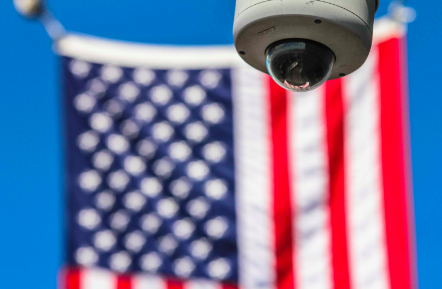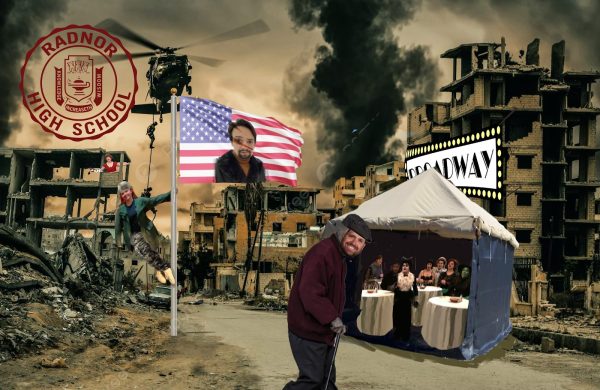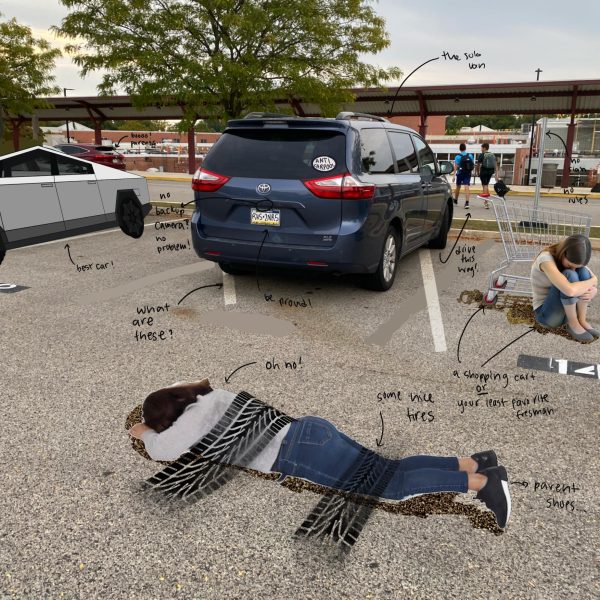Privacy in Post 9/11 America

September 11, 2018
Seventeen years after the tragic events of September 11, 2001, we are a changed America. On that day, our nation reached a fundamental turning point. Our place in the 21st century became uncertain. Our identity, values, and sense of security came into question. The foundations of our republic were shook.
For we high schoolers, the events of that day are but a loose, tangled ball of abstraction we’ve told ourselves we understand. Most of us were either too young to process what had happened, or, more likely, had not been born yet.
Today, we do our best to reflect on the innocent lives lost and to honor the brave heroes who made a difference, but along with our rememberance is a new, critical global perspective, molded gradually after that pivotal moment. It is a product of the history that followed tragedy.
In the years after 9/11, the United States tightened security, involving itself in conflicts abroad and pushing the boundaries of its control at home. At the time, it made sense. Protecting the American people, after one of the darkest days in the nation’s history, had to be a top priority. Yet, as the government clenched its fist, privacy, a right so deeply ingrained in our American identity, was compromised. Under the guise of fighting terrorism, the government assumed a new place in the lives of ordinary Americans.
This is most clear through the lens of the Patriot Act, one of the immediate legal responses to the tragedy. At that juncture, it appeared necessary to strengthen the government’s ability to survey potential terror threats. That’s what the act did; it provided a legal framework for government agencies to increase surveillance of individuals suspected of terrorist connections. However, with that power came means for the government to effectively spy on its own citizens.
Abuses of privacy and government accountability were most heavily exposed by Edward Snowden, a former CIA employee who leaked National Security Agency files in 2013. His leak revealed the overwhelming access the government had to its citizens’ private lives. Snowden, while violating federal law, shed light on a massive surveillance network which made even the most ordinary Americans easy to target (specifically on the Internet).
Ever since, we have viewed 9/11 as a monumental day in our history. It marked the beginning of a new era, with America as a self-anointed global policeman (an admittedly simplistic diagnosis but fitting in depicting an expanded global presence). Security became more than just protecting our citizens or our borders. It was an excuse to pry where we were not welcome and cause destruction with hopes that it could expand democracy. That effort, most visible in the Middle East, failed. Consequences there were accompanied by consequences at home.
Defenders of the post-9/11 surveillance point to the pressing nature of the situation. They say the government had to do all it could to crack down on terror threats. There could not be another 9/11, no matter the cost. Real security meant going the extra mile. That was the rationale: an undoubtedly understandable reaction to a devastating moment in our history. Still, that concession begs a fundamental question. Even in this apparent crisis of American security, was violating individual liberties justified?
In real time, it is a difficult issue to confront. It is often impractical to remove ourselves from our actions and maintain perspective. But if we are to be a nation of unwavering principles, one dedicated to preserving our identity and commitment to personal freedoms, we have to face such dilemmas with forceful resolve. We must protect our values.
Privacy is an increasingly complex subject. With the advancement of technology, its modern definition and limitations are unclear, creating new issues without historical precedent. We are tasked with figuring out how privacy must adapt to a 21st century context. Our government must be able to do its job, but that does not mean it has to compromise the freedoms of its citizens.
In the post-9/11 era, privacy and security have been considered almost mutually exclusive, wherein the tendency towards one means a weaker version of the other. That type of polarity need not be valid. This is no zero-sum game. Rather, we are presented with a unique test: can we keep our citizens safe, while also protecting our nation’s most sacred liberties? The answer, while inevitably nuanced, should reflect a common commitment to the public good.
In 2018, America is at a new crossroads. We have endured the immediate and lasting consequences of 9/11. The world is a different place. Still, our right to be secure in our own persons is fundamental to the perpetuation of our most cherished principles. Privacy, while more complex today than it was just 20 years ago, is crucial to our perseverance.






